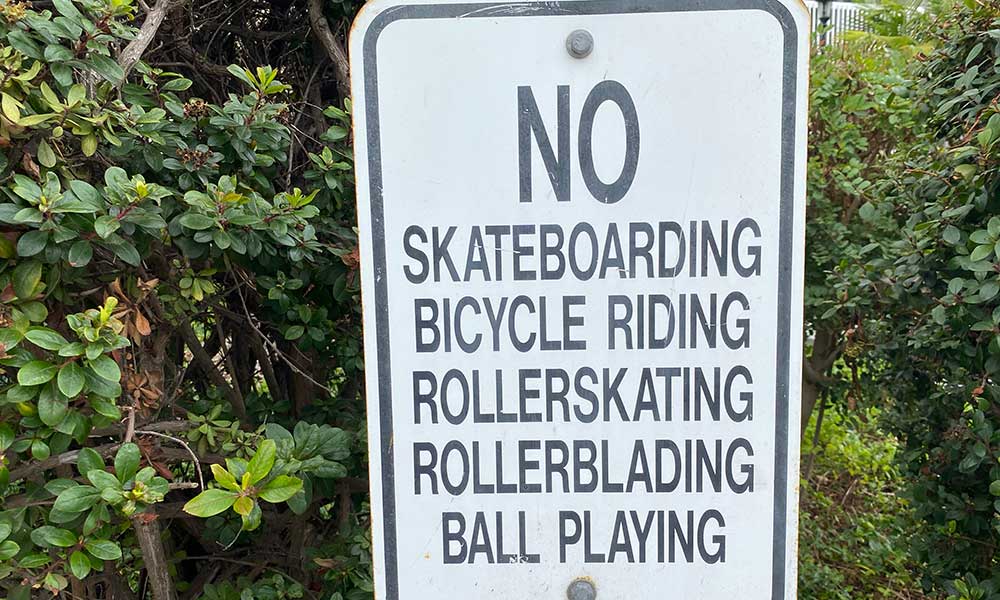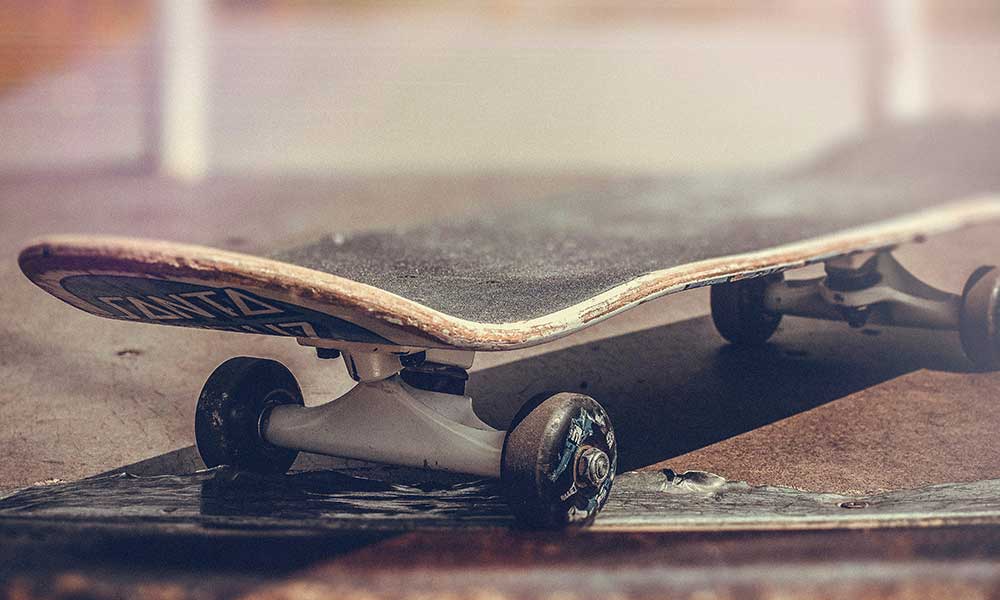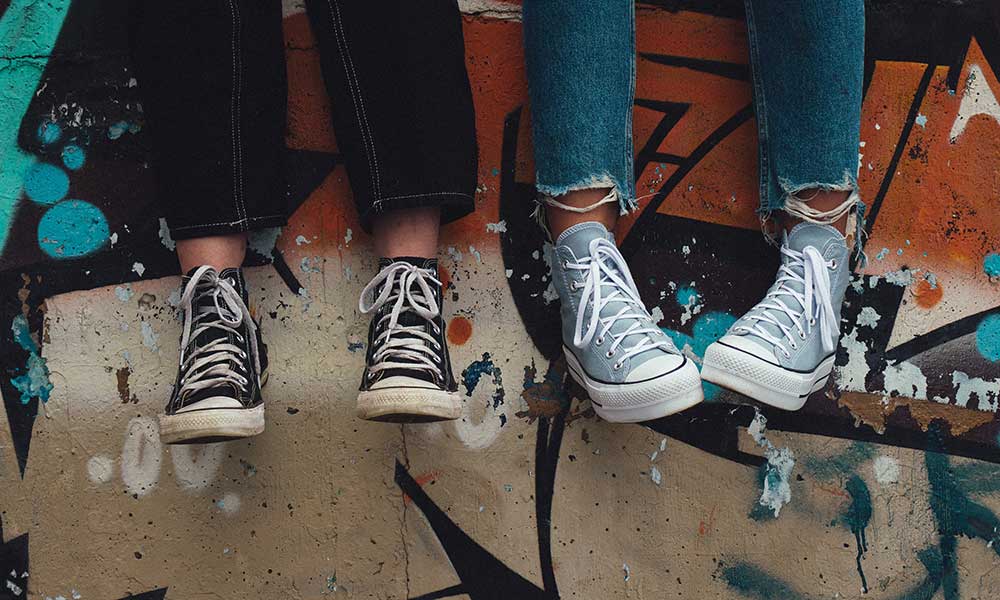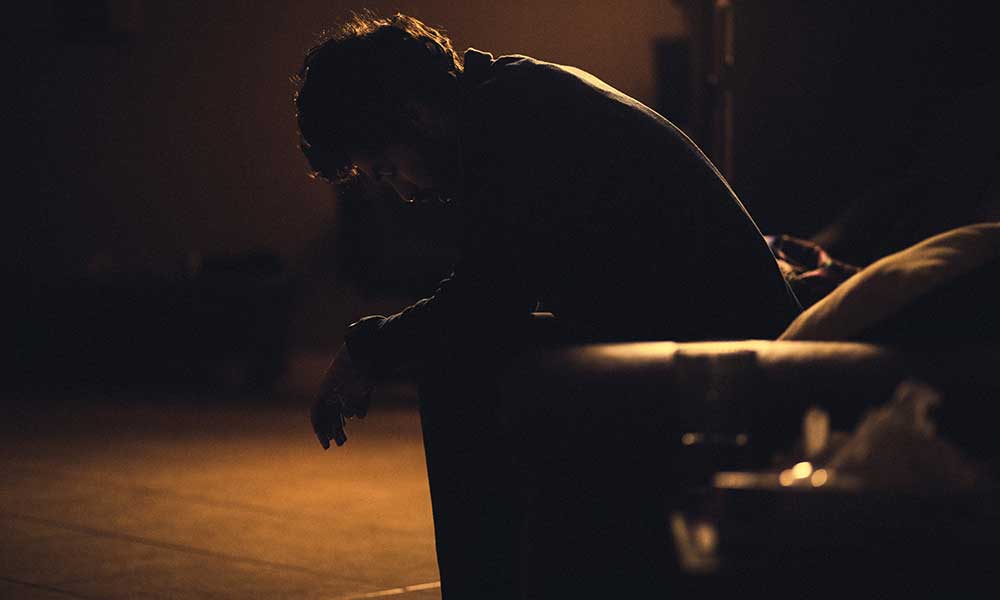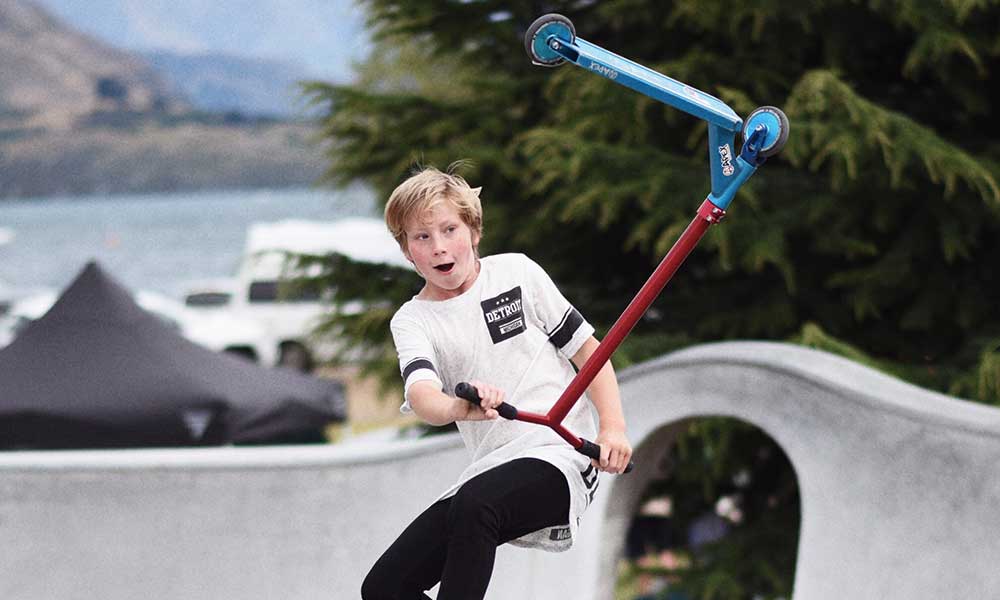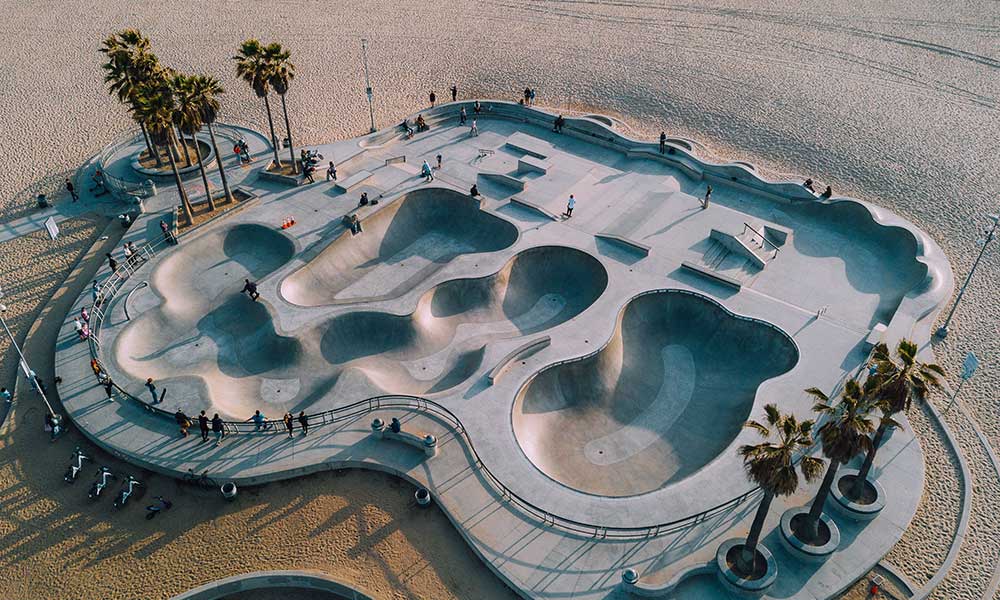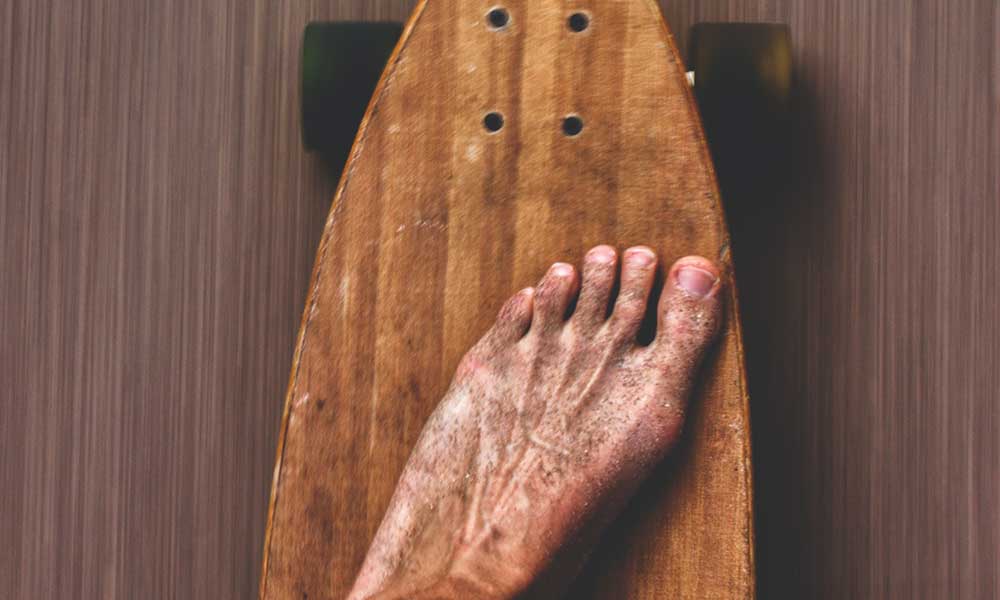“Skateboarding is not a crime” is one of the most iconic statements in extreme sports, one that you will see plastered on t-shirts, bumper stickers, and skateboard decks across the English-speaking world which you can find plenty of on Amazon.
But what does it mean, where does it come from, and how did one of the world’s best-loved street sports adopt an expression that should be obvious to everyone?
Let’s start By asking Tony Hawk
Are skateboards illegal?
No, skateboards are not illegal.
You can buy skateboards.
You can sell skateboards.
You can give them as Christmas presents.
You can accept them as birthday presents.
You can buy skateboards online on Amazon and can go to Walmart or Target and walk out with as many skateboards as you can afford.
Skateboards are very much legal.
Where you can skateboard legally is a different question.
Why “Skateboarding is a Crime” is even a phrase is a different question.
Keep reading, we’ll get into that as well.
Can cops take your skateboard?
The short answer is yes, cops can take away your skateboard.
If you are found doing something illegal on your skateboard your board can be taken away by the police as evidence.
Is skateboarding in public illegal?
Sometimes, skating in public is illegal.
You should research the laws in your area to see which laws are relevant to you for where and how you want to skate.
For example:
You may or may not be able to ride your skateboard in the downtown area where you live.
There may signs or there may not. It is your responsibility to know if skateboarding is actually a crime in this case.
Know the bylaws.
Are you skating in a bike lane? Sometimes that is OK, sometimes it is not.
You should find out.
Are you skateboarding on public property and simply ignoring the signs?
Can you go to jail for skateboarding?
Did you skate where there were signs that said “No Skateboarding”?
Did you harass a manager of a movie theater while skating on movie theater property?
Were you a public nuisance and create dangerous situations?
Were you told to leave the premises and you didn’t?
These are all rhetorical questions and they are some of the things that gave skating a bad name to begin with.
You shouldn’t be surprised if you have your skateboard taken away by a cop and you have a day in court.
Most skaters keep to themselves and skate legally these days.
When you are not a good skate citizen you drag all of us down with you.
Vandalism & Trespassing On A Skateboard
Vandalism is the willful damaging or destroying of public or private property.
Intentional or not, if you ollie onto a picnic table bench and leave a piece of the bench laying on the ground you just vandalized.
Is skating a crime, no.
Is vandalizing, yes.
Trespassing is when go some place without the permission of the land owner.
If you jumped a fence to ride a slab of concrete you have been eyeing up, you just trespassed.
Is skateboarding at night illegal?
The question here is really “What time do minors need to be off the streets”.
Most towns and cities have curfews for kids of certain ages under the age of 18.
If you are out past curfew in your town with or without a skateboard you may be in violation of the law.
Find out what the curfew is in your area.
Also, don’t assume that since your local skateboard park is accessible and the lights are on that it is OK to skate there at midnight.
Check to see what the law is.
Where Did “Skateboarding is Not a Crime” Come From?
Skateboarding is everywhere.
You can find skateparks in every major city across the United States and it’s a sport that is embraced by all age groups.
However, it’s considered a nuisance by many local authorities and that has been true since the very early days, when skateboarders were deemed to be criminals.
There were “no skateboarding” signs and areas; curfews, and complete bans in major towns and cities like Santa Cruz, San Francisco, Chicago, New York, and Denver.
They considered skating to be a menace, with skateboarders seen as lowly criminals who knocked over old ladies on sidewalks and damaged public and private property.
The Washington Post reported on the activity, calling it “destructive” and suggesting that skaters should be banned from parking lots, parks, and other public areas.
It wasn’t just the United States, either.
These laws spread around the world, with skateboarders branded as criminals everywhere from Sweden to New Zealand.
Skating was still expanding and becoming a popular pastime all over the world, but the authorities used every excuse they could find to stop it.
Literal barriers were erected as anti-skate devices were added to benches, railings, and ledges at popular skateboarding sites.
The authorities had spoken, skateboarding was a crime, skateboarders were criminals, and they would do whatever they could to clamp down on the activity.
How Did We Get Here?
Although there were incidents of skateboarders damaging property and causing minor disturbances, they were few and far between.
They were also insignificant compared to the many other problems plaguing society, and yet skateboarders were the ones that the authorities often zeroed in on.
After all, throughout the late 1980s and the 1990s, when the definition of this phrase took root, there was a surge in the popularity of roller skating, roller blading, and cycling.
People were tearing-up the city streets on BMX bikes; kids were bumping into pedestrians as they struggled to balance on blades.
Arguably, bikes were more of a nuisance to traffic and even parked cars, and yet the image of the skateboarder performing tricks on steps and park benches became the one that angered people the most.
The “Skateboarding is not a crime” phrase was born out of frustration and injustice.
The phrase first appeared in the 1988 “Public Domain” video from Powell-Peralta.
The film showed skaters plastering stickers across towns and cities, as well as showcasing them on skateboard decks.
It gradually spread through the skating community and was a reference that every skater could understand and a movement that they could all get behind.
In 1997, the phrase was trademarked by NHS, Inc, a company founded by Doug Haut, Richard Novak, and Jay Shuirma.
They clearly understood the power of words and realized they had the perfect propaganda, something that could promote skateboarding, as well as their brand.
It spread further from there and helped to trigger a gradual change, one that would see skaters and skateboarding become accepted all over the world.
No doubt it was also helped by the appearance of mainstream skateboarding video games and “skater music”, as well as stars like Tony Hawk, who became a household name during the early 2000s.
Skateboarding is still seen as a menace by some, but on the whole, it’s a sport that local authorities have embraced, and while there is no single reason for that turnaround, this famous motto likely had something to do with it.

